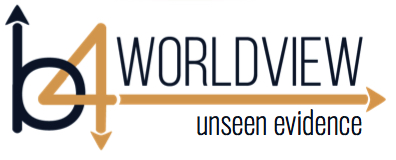
Key Thought for this session:
“Faith is the evidence I cannot observe for the truth that I must act on.”
Okay! We will discuss this topic at the end of this session and compare how you answered this question with what you learn as we progress through this session.
We spent the entire time in session 6 on truth. We maybe even raised more questions than we answered. Let’s look into this further by thinking about a common life situation – this is a simple example, but contains the key points we want to make.
In the poorer countries of the world, 1 of 3 children die before age of 6, mostly due to dysentery from bad drinking water. So, it is evident that the quality of drinking water is super important and makes us cautious. Yet in this country, you can drink from public sources without ever thinking twice about contracting dysentery from that water. Question – “How do you know the water is not contaminated?” It would be unlikely that you would perform laboratory tests on it before drinking it. There are actually a variety of ways that you trust the knowledge you get about the water. You can look at the water to see if it is clear and absent of obvious debris. You also could collect evidence that doesn’t involve observing the water, like what friends and family say, or statements by authorities, and your past experience. While you do not prove any of this evidence you trust, you rarely if ever question the quality of your public drinking water. This is what we want to explore with you in this session. How do we collect and process evidence about an object to know if it is true or not? It may surprise you to think about all the choices you make from evidence you do not personally observe and cannot prove.
I want to share with you six principles about knowledge, truth, and faith that I think you will find interesting and helpful. Situations like drinking water occur all the time in your life. It probably makes some sense to explore in more depth what really goes on in the judgments you make.
The first principle involves this question, “How does knowledge relate to truth?”
Knowledge is not truth. For instance, if you come upon a mother with a child and the child is crying, what would you think?
You then notice the mother is hitting the child on the back. You now have knowledge that the child is crying and the mother is physically hitting the child. But what is really going on here? Do you know the truth about the mother’s action? You may believe she is abusing the child when in fact the truth may be the child swallowed something, and she was trying to dislodge it to save the child’s life. This is an example of where you might have knowledge through personal observation, but you don’t necessarily have the truth. However, some philosophers will claim that you do not have truth unless it is substantiated by observation. What do you think?